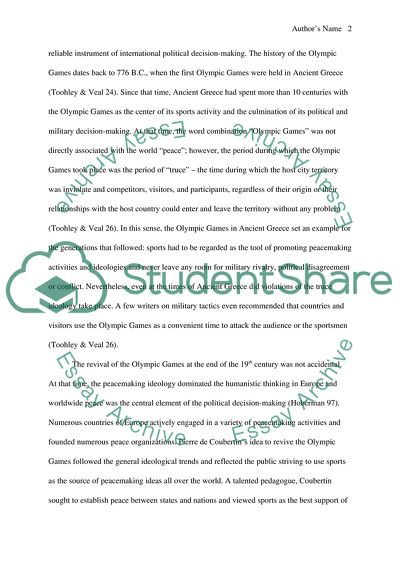Cite this document
(Sport as the Tool of International Diplomacy Essay, n.d.)
Sport as the Tool of International Diplomacy Essay. Retrieved from https://studentshare.org/sports-and-recreation/1740599-have-the-olympic-games-been-successful-in-mediating-peace-in-world-affairs
Sport as the Tool of International Diplomacy Essay. Retrieved from https://studentshare.org/sports-and-recreation/1740599-have-the-olympic-games-been-successful-in-mediating-peace-in-world-affairs
(Sport As the Tool of International Diplomacy Essay)
Sport As the Tool of International Diplomacy Essay. https://studentshare.org/sports-and-recreation/1740599-have-the-olympic-games-been-successful-in-mediating-peace-in-world-affairs.
Sport As the Tool of International Diplomacy Essay. https://studentshare.org/sports-and-recreation/1740599-have-the-olympic-games-been-successful-in-mediating-peace-in-world-affairs.
“Sport As the Tool of International Diplomacy Essay”, n.d. https://studentshare.org/sports-and-recreation/1740599-have-the-olympic-games-been-successful-in-mediating-peace-in-world-affairs.


